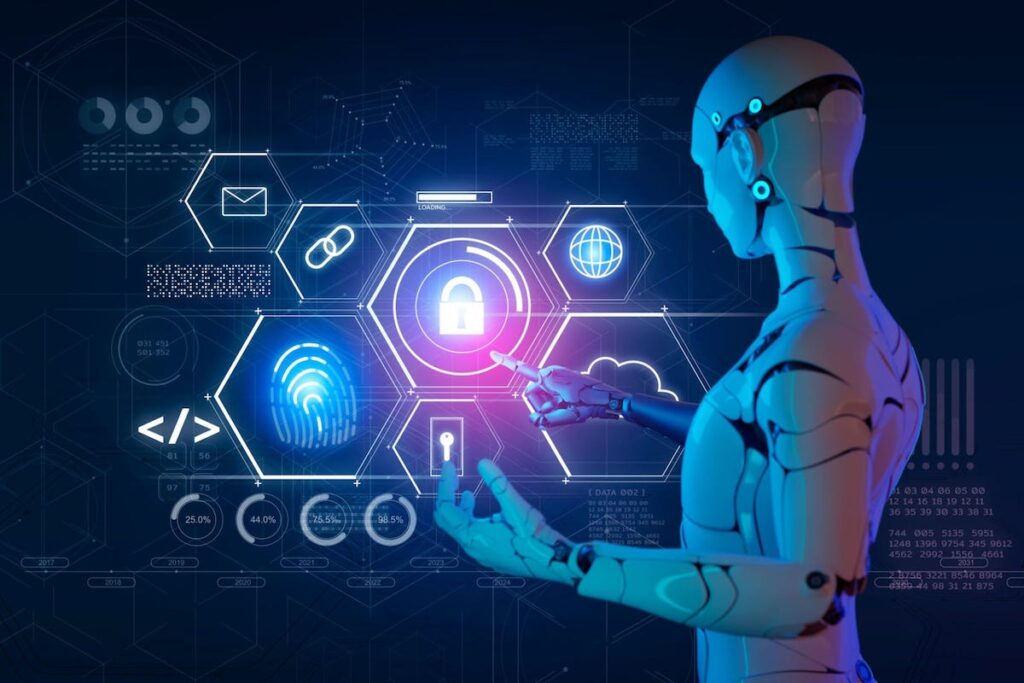Are you insured? This might be the next question your financial advisor asks you this year. The cyber landscape in recent years has seen a rapid change through artificial intelligence intervention, posing both threats and advantages. So far we have crossed paths with the impersonation of renowned celebrities. One lady was scammed out of a generous amount of her savings during an AI-aided phishing attack using Brad Pitt’s face (Pubity, 2024). The lady was going through a divorce and her emotions were vulnerable to exploitation. However, the biggest question was: did the attacker know of her relationship status or was it a lucky guess?
Cybersecurity is a major factor in the current world today. It is the same condition that threatens the banning of TikTok in the United States, as they claim it does not abide by some laws of the state. It might also show some geopolitical tension between the two superpower countries; China and the US. The only available remedy awaiting its ban is for a US-based company to purchase the social app from ByteDance. TikTok’s CEO, Shou Zi Chew, according to credible sources, will be attending the inauguration of President-elect Donald Trump on the 20th of January. If all goes well most people anticipate that his attendance might stop TikTok from going dark in the land of freedom. This signifies one among many disruptions of operations globally.
In terms of cyber resilience, different regions have large separated margins on their confidence if faced with a cyber-attack. According to the World Economic Forum Global Cybersecurity Outlook 2025 report, the Middle East region leads as the most confident while Latin America closes that category. In terms of companies, large firms are more consistent on updating their systems while smaller starter companies struggle to keep up. There is hardly any collaboration heard of since, in the security field, being more secure increases your client outreach. Third parties, being among the smaller companies, are what enable larger companies to stay up. However, larger companies state that their greatest vulnerability is such third parties. It is a tug of war for control but maybe by conceding, everyone can win.
The report shares that 63% of companies today lack measures to authenticate the new AI tools that are integrated into their systems. Large Language Model (LLM), you may find it as a new term but you have most certainly used it in your life. Starting from logging in on a new app and selecting your preferences, to questioning chatbots like ChatGPT, Gemini, CoPilot or even Apple’s ‘Siri’, Amazon’s ‘Alexa’, and Google Assistant. We have given them information that may be personal at times and holds great risk if in the wrong hands. A risk that originates from the listed LLMs and more is fragmentation due to their diverse regulations. When each company declares its terms of use, most of them contradict, which creates loopholes for exploitation.

Another developing problem is the increased lack of cyber talent in companies. To tackle the widening attack surface caused by the rise of AI, a larger workforce is required. It is safe to say that not all jobs are being taken over by AI, but rather a shift in job opportunities. By 2030, AI will have caused that shift of job roles and it is up to everyone to upskill to the latest roles in their professions. Unfortunately for some companies, there has been misconduct in the use of AI. A whole Human Resource team was laid off after the general manager noticed that the AI being used to check resumes was declining all of them. This was after the general manager placed their resume only to be declined by the AI tool (Economic Times, 2024). It is a frightening story to job seekers who are hoping the companies they are applying to will reach out. As AI was being introduced, one of the rules was the use of a human-in-the-loop approach to help increase the efficacy of humans.
Ransomware is the act of encrypting crucial data of a website or a device and demanding an exchange of valuable material like money to restore access. This is what most companies rank as their top concern since 2024. AI has helped strengthen the foundations of cyber criminals, particularly organized groups. Chatbots help them refine their codes and make them nearly impenetrable. Their actions range from using social engineering techniques to impersonating high-ranking officials of companies and states and extracting information to hold ransom among many. The level of detail in some advanced AIs fools even the pros of the blue team. Once a backdoor has been established in the websites, the unsuspecting owners wake up to a zero-day attack.
What is required so far from all the problems analysed is a sense of unity in the security field. Once each company collaborates to one accord, then hopefully this year’s report may turn out to be positive.

